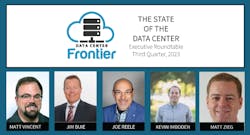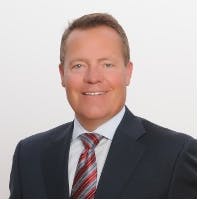Happy Families: Data Center Investor and Provider Relations Outlook
At DCF, we always like to ask the experts - in this case, the four seasoned industry leaders featured in our Executive Roundtable for the Third Quarter of 2023.
In the roundtable's final question of the week, we appeal to our panel for their general outlook in counseling harmonious data center investor and provider relations in 2023.
Our distinguished panel of experts includes:
- Jim Buie, President and CEO, Involta
- Joe Reele, VP Solutions Architects for Schneider Electric
- Kevin Imboden, Global Director of Market Research and Competitive Intelligence for EdgeConneX
- Matt Zieg, VP of Global Strategic Accounts for Vertiv
Now onto the second question of the week for our Executive Roundtable for the Third Quarter of 2023.
Data Center Frontier: The Russian author Leo Tolstoy once famously wrote, "Happy families are all alike; every unhappy family is unhappy in its own way." Across the spectrum of colocation and hyperscale data center construction, expansion and operations, there’s a plurality of investors, builders and providers. What does each party optimally look for in the other to ensure a ‘happy family’? On the flip side, what factors could make for an ‘unhappy family?’
Jim Buie, Involta: The harmony of investors, operators, and customers is found in being in the right location at the right time.
Current supply shortage and increasing demands make for an unhappy family, which will be solved over time as construction catches up to the business needs.
Not unlike other industries like wireless and fiber, construction is playing catch-up for a period of time, at least in the United States.
Today customers are having to shoehorn deployments into less than ideal facilities until the next generation of data centers come online.
As operators and investors, we are striving to project and meet this demand, but we are thinking in terms of years, not months.
Joe Reele, Schneider Electric: For both answers, it comes down to the financial aspect.
For an unhappy family, it's the loss of money or not performing (financially) as advertised.
For a happy family, well, it's the opposite.
Kevin Imboden, EdgeConneX: What makes a happy data center ecosystem is what makes every business in every industry happy: shared expectations and on-time results.
Supply chain disruptions and a lack of targeting and/or strategy have led to fallouts among recent data center partnerships; had there been clarity from the beginning, and a detailed go-forward plan, this unhappiness could have been avoided.
Matt Zieg, Vertiv: The investors need to put money into projects that will generate ROI; the builders want to build in a way that is as cost-effective and as close to project schedules as possible, and the providers are looking to get the maximum amount of lease revenue from their customer to optimize their profitability.
The relationship between all these parties is straightforward. Investors don’t get a return on their investment until the data center is built and then turned over to the provider, so the provider can bring in customers and begin leasing out the space.
This relationship is all about when the money enters and exits the funnel.
So, if the investors aren't making the return they expected in the timeline they anticipated, they're not going to be happy. And if these things aren’t happening, it likely means the construction team hasn’t met its schedules, which means the providers aren’t happy because they can’t start collecting lease revenue.
It’s all about proper scheduling and being able to collect revenue at rates that generate a good return for the investors.
For equipment providers - in addition to industry expertise, engineering support, technology features, breadth of portfolio, and service organization - we need to be able to deliver our equipment on time and at a competitive price, as well as doing anything else that might help the customer speed up their construction timelines.
On the infrastructure equipment side, one way we might speed the process is by offering a prefabricated modular solution that is factory-tested, which reduces time, labor and risks associated with assembling that same system onsite.
Ultimately, if all parties execute as planned – with no changes, surprises or costly delays - the data center build is on time and on budget and there’s lease revenue coming in. That helps to ensure a “happy family.”
Next: Roundtable Recap - Data Center Executive Insights for 3Q 2023
Keep pace with the fast-moving world of data centers and cloud computing by connecting with Data Center Frontier on LinkedIn, following us on X/Twitter and Facebook, and signing up for our weekly newsletters using the form below.
About the Author
Matt Vincent
A B2B technology journalist and editor with more than two decades of experience, Matt Vincent is Editor in Chief of Data Center Frontier.








